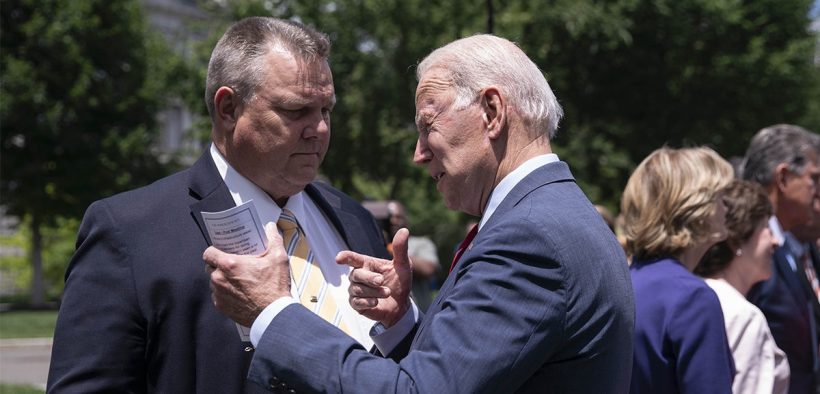Democrats’ Senate hopes could hang on split-ticket voting comeback
Share

With President Biden’s decidedly lacking debate performance and subsequent polling downturn, what was an already difficult fight to preserve a Democratic majority in the Senate could be reliant on a resurgence of voters willing to select candidates of different parties for various positions.
Democrats face a particularly difficult Senate election map, with multiple incumbents in swing states seeking another term. They also only have a remarkably slim 51-49 majority over their Republican counterparts, who enjoy a much more favorable map this cycle.
Senate Democrats up for re-election may be hopeful that split-ticket voting increases in frequency as President Biden’s poll numbers fall. (Getty images)
“If a candidate feels like the presidential candidate is going to lose his or her state, naturally they have to figure out ways to create distance between themselves and the presidential candidate,” said Kyle Kondik, managing editor of Sabato’s Crystal Ball at the University of Virginia Center for Politics.
According to data compiled by the center, split-ticket voting across the presidency and the Senate was most popular in the 1970s and 1980s and more often benefited Democrats, who have been able to frequently score Senate seats in states where Republican presidents won. But the practice has been declining in recent decades.
Per Kondik, this downward trend could make things harder for vulnerable Democrats in the current environment.
The campaigns of Senate Democrats in tough races will likely look different from those of the president or of a Democrat in a safer seat, according to one expert. “As long as Senate Democrats continue to run ahead of Biden in their states, the candidates are likely to stop short of completely linking themselves to Biden to avoid being pulled down,” said Madison Barry Burden, a political science professor at the University of Wisconsin.
“But the calculus is probably different in swing states such as Pennsylvania than in red states such as Montana,” he explained. “As a political misfit in his state, Jon Tester has always needed to portray an identity that is somewhat independent of the national Democratic Party, so 2024 will be no different. In contrast, Bob Casey’s fate depends more on Biden having a good showing in Pennsylvania, so he will probably remain an enthusiastic supporter.”
Republican strategist Doug Heye noted, “No elected Democrat — safe seat or in-play — wants to be first to state the obvious about President Biden’s state of health,” referencing the relative silence of at-risk Democrats amid Biden’s poor debate performance against former President Trump last month.













